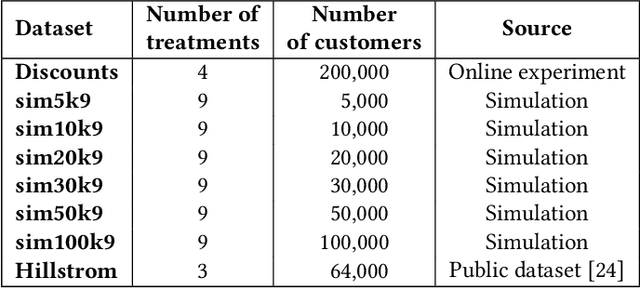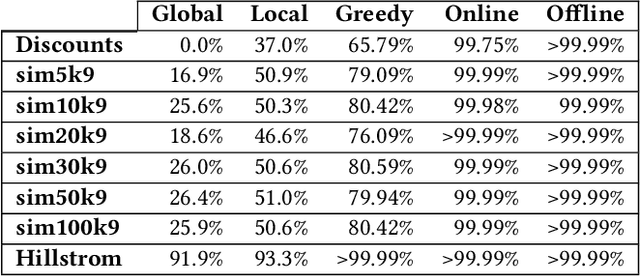Javier Albert
Uplift Modeling: from Causal Inference to Personalization
Aug 17, 2023Abstract:Uplift modeling is a collection of machine learning techniques for estimating causal effects of a treatment at the individual or subgroup levels. Over the last years, causality and uplift modeling have become key trends in personalization at online e-commerce platforms, enabling the selection of the best treatment for each user in order to maximize the target business metric. Uplift modeling can be particularly useful for personalized promotional campaigns, where the potential benefit caused by a promotion needs to be weighed against the potential costs. In this tutorial we will cover basic concepts of causality and introduce the audience to state-of-the-art techniques in uplift modeling. We will discuss the advantages and the limitations of different approaches and dive into the unique setup of constrained uplift modeling. Finally, we will present real-life applications and discuss challenges in implementing these models in production.
E-Commerce Promotions Personalization via Online Multiple-Choice Knapsack with Uplift Modeling
Aug 31, 2021



Abstract:Promotions and discounts are essential components of modern e-commerce platforms, where they are often used to incentivize customers towards purchase completion. Promotions also affect revenue and may incur a monetary loss that is often limited by a dedicated promotional budget. We study the Online Constrained Multiple-Choice Promotions Personalization Problem, where the optimization goal is to select for each customer which promotion to present in order to maximize purchase completions, while also complying with global budget limitations. Our work formalizes the problem as an Online Multiple Choice Knapsack Problem and extends the existent literature by addressing cases with negative weights and values. We provide a real-time adaptive method that guarantees budget constraints compliance and achieves above 99.7% of the optimal promotional impact on various datasets. Our method is evaluated on a large-scale experimental study at one of the leading online travel platforms in the world.
Free Lunch! Retrospective Uplift Modeling for Dynamic Promotions Recommendation within ROI Constraints
Aug 17, 2020


Abstract:Promotions and discounts have become key components of modern e-commerce platforms. For online travel platforms (OTPs), popular promotions include room upgrades, free meals and transportation services. By offering these promotions, customers can get more value for their money, while both the OTP and its travel partners may grow their loyal customer base. However, the promotions usually incur a cost that, if uncontrolled, can become unsustainable. Consequently, for a promotion to be viable, its associated costs must be balanced by incremental revenue within set financial constraints. Personalized treatment assignment can be used to satisfy such constraints. This paper introduces a novel uplift modeling technique, relying on the Knapsack Problem formulation, that dynamically optimizes the incremental treatment outcome subject to the required Return on Investment (ROI) constraints. The technique leverages Retrospective Estimation, a modeling approach that relies solely on data from positive outcome examples. The method also addresses training data bias, long term effects, and seasonality challenges via online-dynamic calibration. This approach was tested via offline experiments and online randomized controlled trials at Booking .com - a leading OTP with millions of customers worldwide, resulting in a significant increase in the target outcome while staying within the required financial constraints and outperforming other approaches.
 Add to Chrome
Add to Chrome Add to Firefox
Add to Firefox Add to Edge
Add to Edge